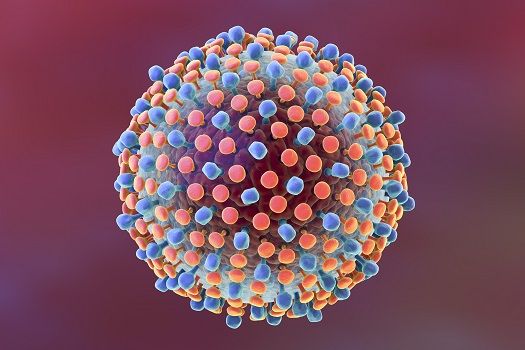Ribavirin May Retain Role for HCV with Cryoglobulinemia
The addition of ribavirin to direct-acting antiviral treatment of HCV with cryoglobulinemia aided to achieving immunological response.

The addition of ribavirin to direct-acting antiviral (DAA) treatment of hepatitis C virus (HCV) infection with mixed cryoglobulinemia (MC) proved advantageous to achieving immunological response, with reduced serum cryocrit measured when sustained virologic response was achieved at 12 weeks (SVR12).
MC is the most common extrahepatic manifestation of HCV chronic infection, detectable in 20-30% of patients, and manifesting symptoms such as palpable purpura, skin ulcers, neuropathy or kidney involvement in 10-15%, according to Lucio Boglione, PhD, Unit of Infectious Diseases, Department of Medical Sciences, Amedeo di Savoia Hospital, University of Turin, Italy, and colleagues.
The investigators note that although DAA treatment is effective in HCV with or without this complication, the role of ribavirin with DAAs in affecting immunological response and the decrease of cryocrit had not been previously investigated. They posited there could be an additive effect, as ribavirin has demonstrated immunomodulatory activity leading to induction of interferon-stimulated genes (ISGs) and modulation of natural killer (NK) cells.
"This important aspect may play a role in its immunomodulatory effect on MC in HCV chronic infection, even after eradication of this virus," Boglione and colleagues wrote.
The investigators identified 132 patients with HCV chronic infection and MC (100 male), median age 54 years, having HCV for a median 14.6 years, with 1b the most prevalent genotype. Seventy-two patients had not had previous HCV treatment. Median cryocrit was 4.5%, and symptomatic cryoglobulinemia was detected in 57 patients.
Several different DAA regimens were used in the population, with ribavirin added for 45 patients, in consultation with the specialist treatment provider. Immunological response was defined as "complete" if there was no measurable cryocrit at SVR12; or as a "partial response" if cryocrit declined by less than 50% from baseline; and "no response" corresponded to no decrease in cryocrit.
All patients achieved SVR12. Immunological response differed however, with complete response occurring in a significantly higher proportion of patients receiving ribavirin (71.1%) than in those who did not (44.8%). In addition, treatment-naїve patients were more likely to have a better immunological response than those who had prior HCV treatment.
Those with prior treatment had generally received regimens with interferon, and were also more likely to have had longer duration of HCV infection.
"Ribavirin addition may increase the immunological response and the improvement of symptoms, without any obvious significant adverse effects," researchers concluded.
There is a cautionary finding, however, in a contemporaneous report assessing effects of treatment for HCV-related cryoglobulinemia by another research group from Italy. Ceasare Mazzaro, MD, Clinical and Experimental Onco-Hematology Unit, CRO Aviano National Cancer Institute IRCCS, Aviano, Italy, and colleagues reported that in a series of 22 patients, "Mild side effects occurred in 9 patients, but 6 developed ribavirin-related anemia requiring reduction of ribavirin dose."
The study, "Role of ribavirin in the treatment of hepatitis C virus-associated mixed cryoglobulinemia with interferon-free regimens," was published online in Archives of Virology this month.